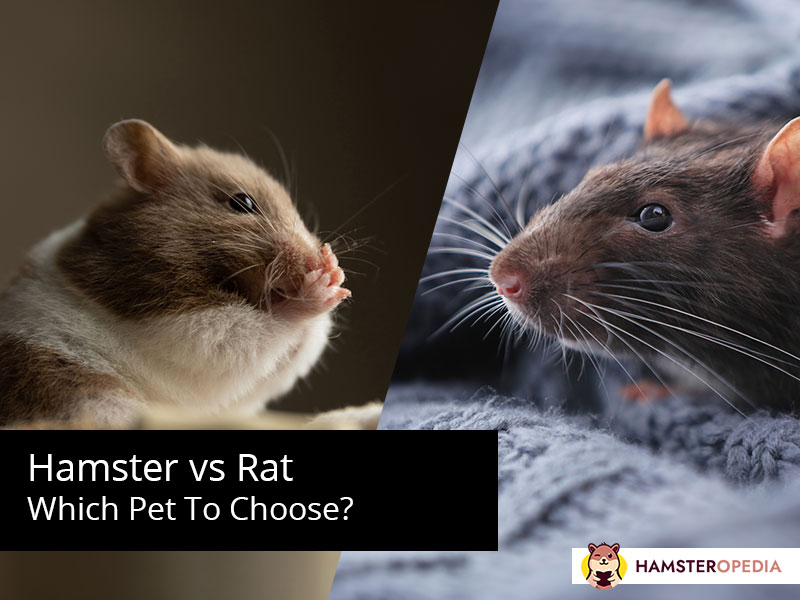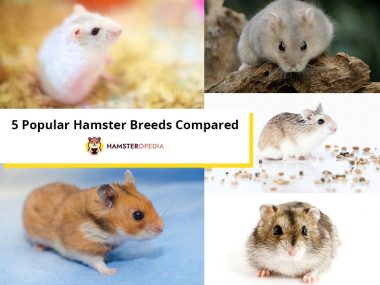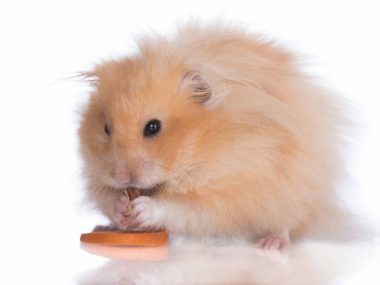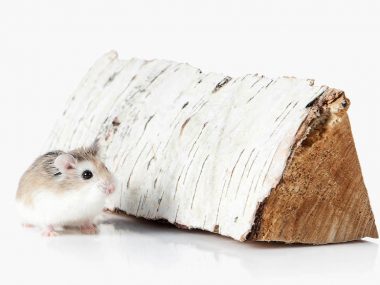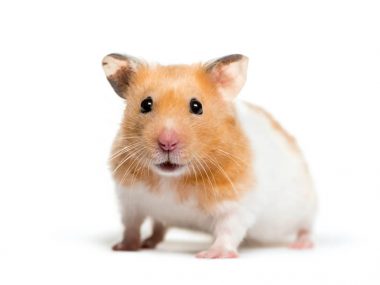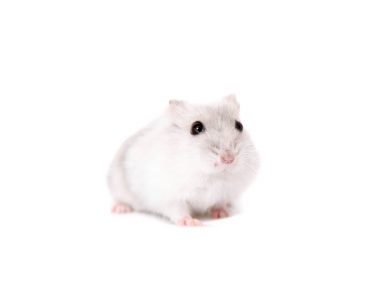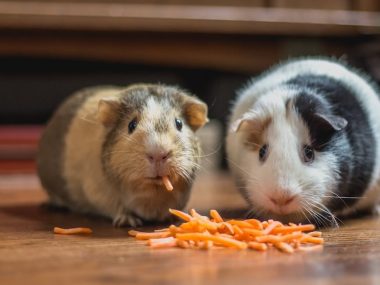Rats are becoming increasingly popular as pets, although they are still far outnumbered by cute hamsters. Maybe it’s their long naked tails or the bad rap they got as carriers of filth and disease that put people off, but things are changing, and rats are coming into their own as excellent small pets.
Rats are bigger than hamsters, more social, and can be trained to do tricks. Hamsters are cuter, less friendly, and can be kept on their own. They have a similar lifespan. Both are clean animals that spend a lot of time grooming. Rats and hamsters are both excellent pets for anyone with limited space.
Anyone who has seen the Disney movie Ratatouille may have fallen in love with the loveable main character who aspires to be a famous chef. So when you need to choose a new pet, you may consider getting a rat instead of a hamster. Let’s go through what you need to know so you can make the best choice for your situation.
Table of Contents
Hamster Vs. Rat: Which Pet To Choose?
Hamsters and rats both have adorably whiskered faces and cute little paws to hold their snacks while they’re eating. They are both rodents that love tunnels and mazes, so it may not seem like there are a lot of differences between the two pets.
While they have similarities, hamsters and rats differ significantly in appearance, temperament, and behavior, and potential owners should know what to expect from each.
Differences Between Rats and Hamsters
Rats and hamsters are entirely different pets. In the same way that hamsters and guinea pigs are completely different, new owners must understand that pet rats require very different kinds of care from hamsters.
| Rats | Hamsters |
|---|---|
| Not as chubby and cute in appearance | Adorable plump faces |
| Have a long, naked tail used to balance | Cute fluffy bottom – no long tail |
| Social and may enjoy having a friend | They should live on their own so cheaper |
| Need more space | Can live in a smaller cage |
| Very intelligent and can learn tricks | Unlikely to learn tricks |
| Friendly and curious | Less social and may be grumpy |
| Don’t burrow as much as hamsters | Love to burrow |
| Larger than hamsters | Smaller than rats |
| Prone to respiratory infections | Very susceptible to stress |
| Often a solid color | May be different colors |
| Extremely agile | May be quite clumsy |
| Occur and thrive naturally worldwide | Natural habitats are specific regions |
Similarities Between Pet Rats And Hamsters
Now that we have covered the differences, you may think owning a rat is entirely different from keeping a hamster. While they are different, there are also several similarities.
- They have similar lifespans of around 2 years.
- Both have terrible eyesight.
- Rats and hamsters navigate the world using smell, sound, and touch.
- Both can be potty trained.
- Both are prey animals, so if they are not safe inside their cage, they must be very carefully supervised as they may be timid and try to hide.
- Rats enjoy using a hamster wheel, but it must be large enough so a rat can fit comfortably.
- Both pets are primarily nocturnal, although rats are less fussed about being woken during the day. Hamsters tend to get a bit cranky and stressed if their daytime sleep cycle is disturbed.
- All pets will require veterinary care. Despite their reputation for being tough, rats are prone to respiratory conditions and, like all pets, may occasionally need medical care. Rats are, therefore, not a cheaper alternative to hamsters.
- Hamsters and rats are omnivorous, and both are prone to becoming overweight if given an incorrect diet or too many treats.
- Hamsters and rats can both be excellent, clean, loving pets if they are well cared for.
Are Rats Friendlier Than Hamsters?
Rats are often perceived as friendlier than hamsters – or rather, that they have more outgoing personalities. Hammies love to chill in their well-set-up cage habitats and will learn to enjoy regular interaction with their owner. Tame pet rats usually love interacting with people.
Many rat owners also report that rats are less likely to bite if they get a fright. This may also be because they are considerably bigger than hamsters and aren’t as fragile. They may be a better option for homes with small children.
The friendliness of any pet has a lot to do with its personality. One can find timid or outgoing individuals in any species, and it’s the same with rats and hamsters. Hamsters can form strong bonds with their owners and can be very friendly.
What Is Better, A Rat Or A Hamster?
No pet is better than another. Each is suitable for the circumstances of the owners. For example, while a rat is an excellent pet for some people, others may never be able to deal with the feeling of its long tail wrapping around you and find it creepy.
When discussing the characteristics of any pets, it is essential also to consider individual personality traits. Like humans, cats or dogs, each individual is unique. For example, while rats are generally more social animals, one may occasionally find an extrovert hammie or an introvert rat.
Hamsters are low-maintenance pets that don’t need much interaction to live happily in their own little world. Although they enjoy exploring and environmental stimulation, hamsters prefer a quiet environment with one primary owner.
They are perfect pets for anyone who would love a small pet companion that is content to nap all day quietly and run on its wheel at night.
Rat Or Hamster – Which Is Smarter?
Sorry hamster owners! We have to admit it; rats are incredibly smart. In fact, in a study published by Harvard Business Review, rats outperformed humans on some cognitive learning tasks!
That is not to say that hamsters aren’t intelligent, but they do have significantly lower short-term memory than rats. Rats have evolved to be adaptable problem solvers, making them highly interactive and entertaining pets.
Hamsters can learn to recognize their owner’s voices and enjoy exploring new sensory items placed in their cage, but they are unlikely to learn tricks like rats. Rats are wired for learning and, with some patience and lots of rewards, can be trained to do plenty of neat tricks.
Do Rats Smell Worse Than Hamsters?
Rats as a species have a long-standing, deeply entrenched bad reputation as smelly creatures that carry disease. However, this is unfounded, and rats are, in fact, very clean animals. According to an article by Cummings School of Veterinary Medicine, rats groom more often and thoroughly than cats.
Any smell associated with pet rats would be the result of poor cage hygiene or using unsuitable bedding. Just like hamsters, pet rats can be potty trained, and even if they don’t have a designated toilet area, they tend to use one place in their cage.
Rats and hamsters themselves should not have an unpleasant smell. Like all animals, urine doesn’t smell great, so keeping them in a cage with sufficient space, using the right bedding, and cleaning the cage regularly will ensure that neither rats nor hamsters smell unpleasant.
Are Hamsters Or Rats More Affectionate?
While hamsters are certainly able to form a strong bond with their owner, rats are naturally more social and cuddly. In households with a primary owner, hamsters fare very well, and they can learn to recognize and trust their owner. Once they are tame, they often enjoy spending time with their human and will exhibit signs of affection.
Rats are naturally curious, relaxed, and more social pets. Once they are tame, they are more tolerant of being passed around between family members. They are also less likely to be stressed about being kept awake during the day, while their hammie relations can get a little cranky about being woken up.
Is A Hamster Or A Rat Better As A Child’s Pet?
Although hamsters are often acquired as ‘starter’ pets for young children, they are very small, fragile, and easily stressed. All interactions with curious little hands must be closely monitored to ensure the animal isn’t dropped or loved (squeezed) to death.
Hamsters also prefer peace and quiet and do better with one owner with whom they can form a special bond. They are solitary little creatures who don’t need much more than a clean environment, a hamster wheel, and plenty of delicious food.
Rats are slightly larger, more docile, and less likely to bite than hamsters. Also, they don’t mind being woken up during the day, when young children usually want to interact with their pets.
Pet rats are extremely intelligent and need plenty of stimulation. It is kinder to keep two rats as they enjoy company, so it can also be highly entertaining for kids to simply watch their rats playing and going about their business inside a spacious cage.
It is important to emphasize that all pet rodents, whether hamsters, rats, guinea pigs, or gerbils, must be looked after by an adult. The cage needs to be cleaned regularly, and the animals must get a suitable, varied diet to stay healthy and happy.
Final fun rat fact: A group of rats is called a ‘mischief.’
